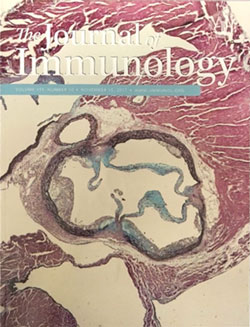behind The Bench
Scientist’s complex questions may find answers to atherosclerosis
If atherosclerosis is ever eradicated, there’s a good chance Dr. Elena Galkina’s research will have played a part.
During her 10 years at EVMS, Elena Galkina, PhD, Associate Professor of Microbiology and Molecular Cell Biology, has run a research lab focused on atherosclerosis, a progressive disease that leads to artery-clogging fatty deposits — called plaque — that cause heart attacks, strokes and peripheral vascular disease.
A recent $2.5 million grant from the National Institutes of Health is enabling Dr. Galkina and her team to study the role of specific immune-system cells in atherosclerosis. The team also is collaborating with EVMS diabetes experts on research related to type 2 diabetes and plaque buildup, work that's supported by a $2.4 million NIH grant.
Her team’s newest direction, for which Dr. Galkina will soon seek funding, involves partnering with EVMS Sleep Medicine specialists to study how sleep fragmentation affects atherosclerosis.
“I’m interested in asking complex questions and blending different fields,” she says. “Sleep problems, as we know, can affect all parts of the body.”
Dr. Galkina has been asking complex questions since she was drawn to biology and chemistry as an undergraduate in Saint Petersburg, Russia, where she grew up. After earning her doctorate at the Institute for Experimental Medicine there, she was invited to the National Institute for Medical Research in London for postdoctoral training.

Dr. Galkina did her second postdoctoral training at the University of Virginia, where she worked with Jerry Nadler, MD, now EVMS' Vice Dean for Research, the Harry H. Mansbach Chair in Internal Medicine, and Professor and Chair of Internal Medicine. When Dr. Nadler came to EVMS, he knew Dr. Galkina would be an asset to the school’s growing research enterprise, so he recruited her from UVA.
One result of Dr. Galkina’s early work was the development of a new method to study leukocyte content in large blood vessels, a method now used by many labs around the world.
“Science is highly competitive right now,” Dr. Galkina says. “To get grants, you have to be at the top of your field. You have to find your own niche, and you have to like what you do.”
Tayab Waseem, PhD (Biomedical Sciences ’18), is a recent EVMS graduate who worked in Dr. Galkina’s lab for several years.
“She really pushed me,” he says. “She’s been a wonderful mentor and teacher.”